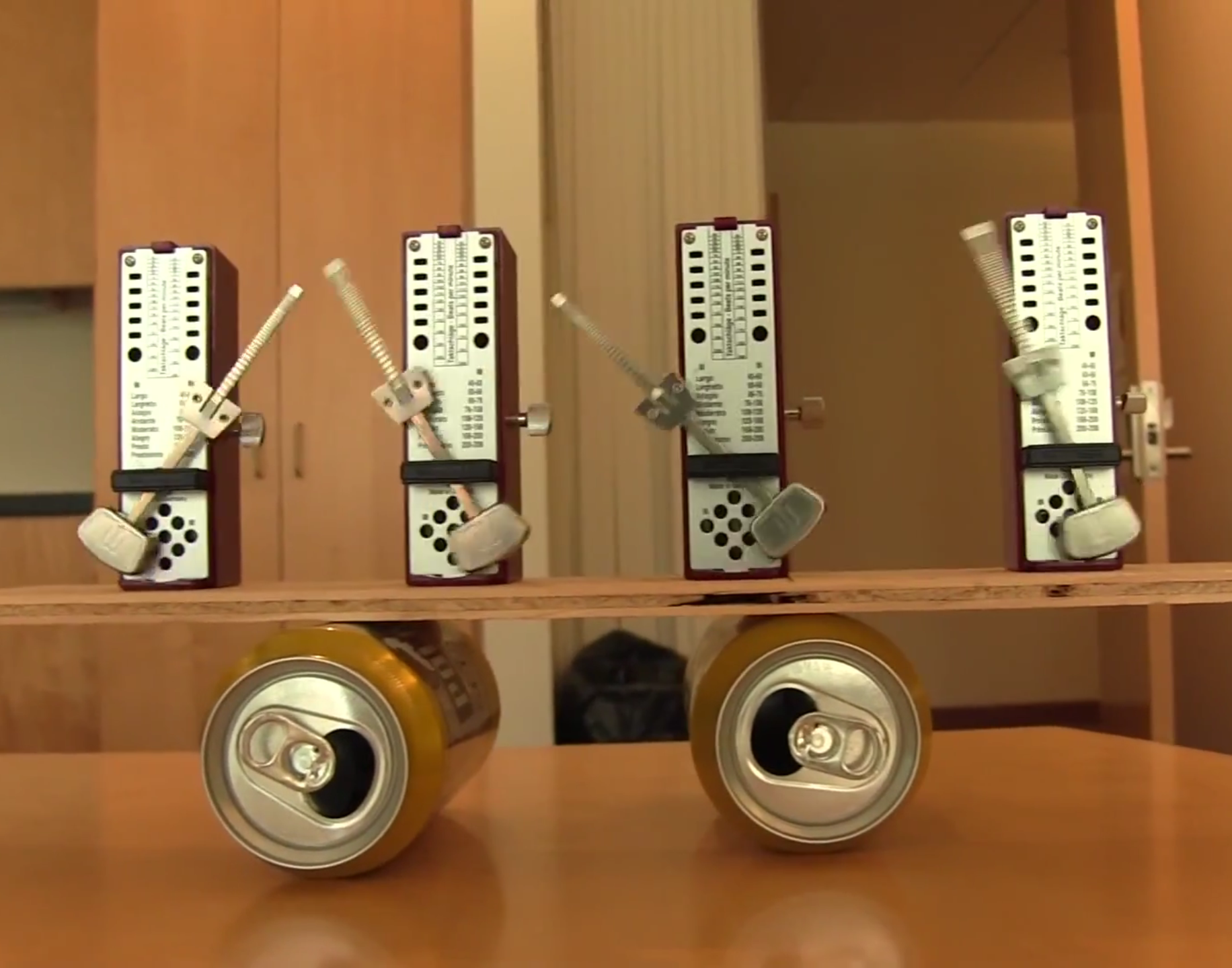Oscillating Neural Network Demonstration
McGovern Institute director Bob Desimone demonstrates how discordant metronomes achieve synchrony.

It has been recognized for decades that the brain produces rhythmic patterns of electrical activity, colloquially known as “brain waves.” These rhythmic patterns reflect the activity of thousands or millions of neurons, each with its own intrinsic rhythmic tendencies. If each neuron is firing independently of its neighbors, the overall effect will appear as noise, but when they become synchronized, their combined effect can be detected as rhythmic oscillations, which in some cases are strong enough to penetrate the skull, allowing them to be recorded noninvasively with electrodes on the scalp.
This video illustrates a mechanical analogy for how this synchronization occurs; the ticking metronomes influence each other through the side-to-side movements of the board on which they sit, and over time this causes them to lock into a synchronous pattern.




